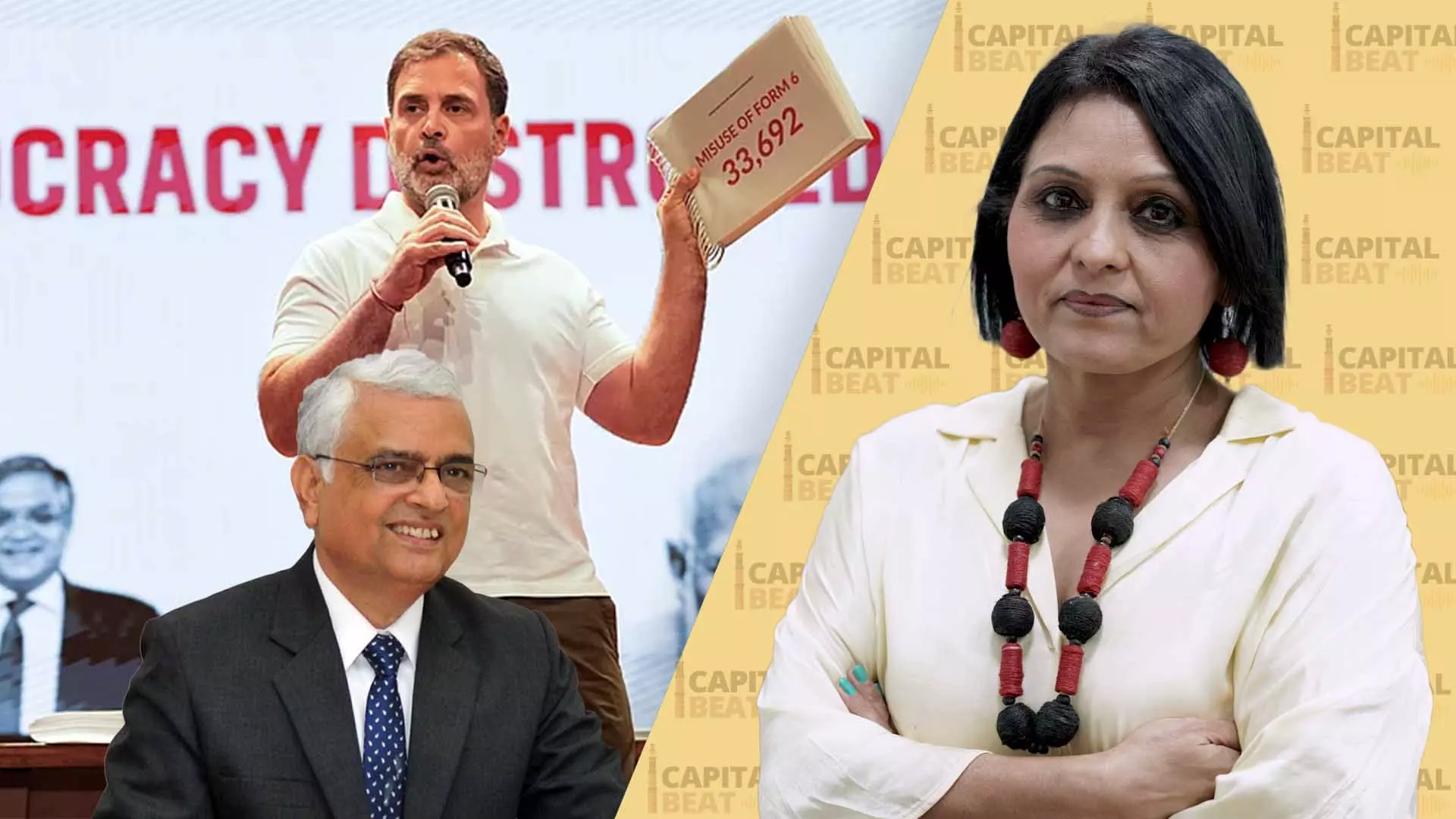
Centralised vote fraud theory not possible, says ex-CEC Rawat I Capital Beat
Former chief election commissioner (CEC) OP Rawat maintains that a centralised system to alter voter rolls is not possible, but calls for EC to conduct a full investigation

Congress leader Rahul Gandhi’s explosive second press conference alleging large-scale voter fraud has triggered a heated debate on the functioning of the Election Commission of India (ECI). In the Federal Capital Beat discussion, former Chief Election Commissioner (CEC) OP Rawat was questioned on the allegations of organised voter deletions and additions through a centralised software system.
Rahul claimed that an “unknown force” was manipulating electoral rolls using call centres and software-based operations. He cited the case of Karnataka’s Aland constituency, where the state CID reportedly wrote 18 letters to the Election Commission seeking details such as OTP trails, destination ports, and devices, but received no response.
The Congress leader also presented individuals whose names were deleted from the rolls without their knowledge, despite their mobile numbers being linked to voter forms. This, Rahul argued, pointed towards an orchestrated cyber operation compromising the integrity of elections.
Rawat dismisses centralised fraud theory
Responding to allegations, former CEC Rawat maintained that a centralised system to alter voter rolls through the Election Commission’s interface was not possible. He explained that while individuals may misuse systems, institutional-level manipulation could not occur within ECI’s digital framework.
Also Read: As BJP sets the template, states join social media gag order culture
Rawat acknowledged the possibility of isolated cases of negligence, pointing out that electoral officers sometimes lacked digital literacy. In such cases, officials could entrust tasks to outsiders by sharing credentials, inadvertently opening scope for misuse.
He emphasised that the Election Commission had already filed First Information Reports (FIRs) after preliminary investigations revealed irregularities, with the Karnataka CID probing the matter further. “EC server can never be compromised. EC’s database can never be compromised. All those have such safety things of such firewalls that nobody can do it. That much I can certify,” Rawat stated.
Concerns over deleted names and suspicious entries
During the press conference, Rahul highlighted anomalies such as repeated deletions against serial number one, along with entries containing nonsensical names like “Shasti Shasti” and “SUJ, VUJ, IJK.” He argued that these patterns could only be computer-generated and part of a larger conspiracy.
Also Read: Vote theft row: Rahul shows why Opposition Leader's role is vital
When pressed on these details, Rawat clarified that only a thorough investigation could establish whether the scale of deletions indicated systemic fraud. He noted that while allegations cited thousands of deletions, the verified numbers from Election Commission’s initial probes remained undisclosed.
Rawat insisted that any allegations of voter roll tampering must be supported with verified evidence from official investigations. He pointed out that Congress’s figures had not yet been independently validated by the ECI.
Role of investigating agencies and CERT-In
On the issue of cyber vulnerabilities, Rawat explained that the Election Commission’s digital technology systems are overseen by a Deputy Election Commissioner with technical expertise. In situations involving cyber threats, the Commission works with the Indian Computer Emergency Response Team (CERT-In) to implement safeguards.
He recalled that during his tenure, CERT-In advised the ECI to stop publishing digital electoral rolls online, replacing them with PDF image formats to prevent hacking attempts from abroad. This, Rawat said, strengthened the security of voter data.
Addressing the specific claims about phone numbers being misused for OTP-based deletions, Rawat said cloning or SIM duplication could be a plausible explanation. “That is the only possibility which you mentioned, that if their phone was not used, it means their phone got cloned or the SIM got cloned and somebody operated on their phone,” he remarked.
Call for transparency and investigation
Throughout the discussion, Rawat stressed that the Election Commission must not dismiss complaints outright. He criticised the practice of rejecting allegations within minutes, without deeper examination, as was done in response to Gandhi’s press conference.
He said every complaint should be fully investigated, and findings should be placed in the public domain to maintain trust in the electoral process. “Election Commission must always take the responsibility of every complaint squarely and investigate deep down right up to the level of investigating agency,” Rawat said.
Rawat further emphasised the importance of assisting investigating agencies like the Karnataka CID by providing all required documents and data to ensure a logical conclusion to ongoing cases.
The content above has been transcribed from video using a fine-tuned AI model. To ensure accuracy, quality, and editorial integrity, we employ a Human-In-The-Loop (HITL) process. While AI assists in creating the initial draft, our experienced editorial team carefully reviews, edits, and refines the content before publication. At The Federal, we combine the efficiency of AI with the expertise of human editors to deliver reliable and insightful journalism.

